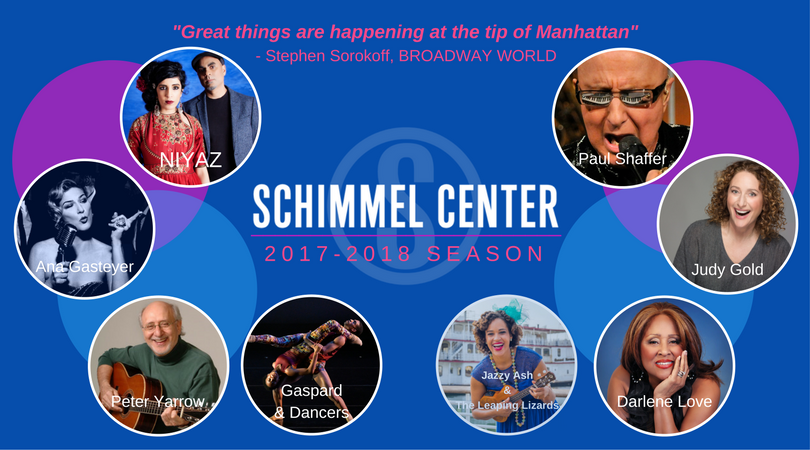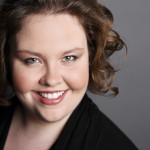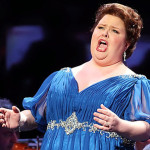Inside Look: An Interview With Jamie Barton
On Sunday, November 3, Pace presents will welcome the inaugural performance of the Voce at Pace recital series. The series is a rare opportunity for New York audiences to see rising opera stars in an intimate recital setting. It is curated by Matthew A Epstein. We are very excited to have Jamie Barton kick off this intriguing new series. Ms. Barton is the winner of the 2013 Cardiff Singer of the World competition and only the second American singer to do so in the thirty year history of the competition. She also recently received rave reviews for her role in the Metropolitan Opera House’s latest production of “Norma.” Pace Presents blogger, Michael Torbet recently sat down with the young star to discuss her upcoming recital and her career thus far.
MT: Jamie, Can you describe your musical background growing up to me? How did this musical background lead you to your passion for opera?
JB: Well… (laughs). My musical background wasn’t in classical music at all. Actually, my parents loved music but it was more Grateful Dead and blue grass music and that sort of thing. I grew up in a household with a lot of music appreciation. We went to church and sang a lot of hymns, that kind of thing was very popular where we’re from. What led to my appreciation for classical music was when my parents put me in piano lessons; that’s where I heard classical music for the first time. I’d also have to say, teenage rebellion. Growing up on a farm with hippie parents, I kind of wanted to do something opposite from what I grew up with. Classical music is just about as far off from blue grass music and The Grateful Dead as you can get.
MT: It was an opposite rebellion in some ways.
JB: The worst rebellion idea ever but it worked out well for me in terms of life. I really started getting into listening to Chopin, listening to musical theatre, listening to a little bit of opera but not a ton. After a few years I was reintroduced to opera and I fell in love. It was sort of a very odd line to it.
MT: The Voce at Pace series is exciting because it’s one of the rare opportunities for New York audiences to experience rising opera stars such as yourself in an intimate recital setting. Can you speak about the differences in performing a recital as opposed to playing a part in a fully produced opera?
JB: Oh yeah, absolutely. There are some similarities, you are still performing but when you are on stage in a costume you are set into one story. You know, you’ve got that one story that you are telling over the course of two plus hours, for the night. With a recital it’s much more of a kind of “tapas” version, as I like to say. Its many stories, many more flavors over the course of a much shorter evening. As a performer I really like that I get to tell all of these different stories. It’s challenging in a way because you have to be engaged the entire time. In an opera you aren’t singing the entire hour straight trough. In a recital you are. It is a vocal challenge but at the same time, for me it is very rewarding to do a recital. I am a storyteller, first and foremost. Starting in musical theatre and then going on to where I am in opera, that’s the element that I still fall in love with. When I go see an opera, if I don’t have friends in it or I don’t know the production, what is going to get me interested? What is going to get me hooked? For me, it’s the story telling; it’s the truth within what the performers are portraying in their characters. It’s the same way in a recital, if I ‘m going to see one, what’s going to keep me engaged for an hour? It’s a person up there screaming at me for an hour. It better be very interesting and beautiful screaming for me to want to be there for the hour. I have to think about these things. This is my job, to consider the audience. This isn’t their job. They are here to be entertained and I am the entertainer. I try to find ways of keeping them engaged.
MT: Are there any artistic advantages to the recital format that you don’t get performing in an opera?
JB: Well artistically, I get to stretch my legs in many different directions. I get to try out different languages. I get to try out different stories. In this recital I get to sing in Swedish. How many times to you get to do that on opera stages? It happens, but not very often. Also, when you are in an opera, you are hired in to do this one role. You have your preparation vocally, text wise…. Hopefully someone coming in has a good idea what they are going to do with their character. But so very often, because there is a team of people hired to create this show…… you’re going at the suggestion of the conductor and of the director…
MT: Its more collaborative.
JB: Exactly, (opera) is more of a team sport while (recitals) are more solo. In a recital format, you have to make the decisions. You get to make the decisions. It’s really wonderful, actually. I like it.
MT: Can you tell me about your favorite piece that you picked for this performance?
JB: Oh gosh….. (laughs). Well the first thing that I hope people know is that this entire program is based off of music that I picked for Cardiff Singer of the World Competition, this past summer and won with. So all the groups within the show are built on something that I did there. That being said, picking the stuff for Cardiff, I was literally picking through my favorite stuff. It’s really hard to choose a favorite piece.
MT: Almost like picking your favorite baby?
JB: Right? (laughs) It’s really, really hard to choose. I am a sucker for the Ives group. The newest one to me is “The Housatonic at Stockbridge”. It is just a gorgeous piece. Charles Ives was just an incredible American composer, unlike any other American composer that I can think of. He took all of these hymn tunes and other popular tunes of his time and weaved them throughout his compositions, so its really cool when you listen to his music because you are familiar with it in some way. You may have never heard his music before but you are hearing a quote from something else. In all these songs you are getting these little snip bits of all these quotes and it’s really cool to hear. “The Housatonic,” when Brad plays it, you can hear the river. It’s about a river. It sounds like a river. It sounds like the swirling calm spots and the tumbling rapids. You really get a sense of the beauty and the nature of the river. It’s just really, really cool and it’s one of my favorite compositions for sure. But I could go down the list of every piece in this recital and tell you why I love it.
MT: How does the repertoire that you picked for this performance reflect on who you are as an artist right now?
JB: Well, some of this rep is what I have done for years, so from the very early age of singing and discovering. Some of it is stuff that I have just now picked up, closer to where I am now as an artist. It’s really eclectic. I really prefer that, I really love going into recitals or listening to recordings where you get surprised by something that is just stunning and you didn’t know it before. In the Brahms group you get some standards in there. You get some very, very popular tunes and they’re all fantastic. But with this Purcell piece I’m doing, not only is it a very popular Purcell piece, but this particular version was realized by Benjamin Britten. So you get this Benjamin Britton flavor on top of this Purcell piece. Its really, really cool. I’d say the Sibelius group and the Elgar “Sea Pictures” are really the newest to me, in a way. Though with the “Sea Pictures” I’ve been doing, “Where Corals Lie” since the time I was a very young singer. I’ve just discovered the rest of that group. I’d say that this is a fairly thorough screen shot of my artistic line from the time of just beginning to now, actually.
MT: That’s great. So our audience will really get to see a clear picture of where you are now and where you’ve been. As you mentioned earlier, you recently won Cardiff Singer of the World. Is this a goal that you have had for a long time or is it something that just came to you as a result of your career?
JB: In a way it’s been a goal. You have to be very, very lucky to be nominated to audition to become a part of the competition. There are several different steps before you are even selected to compete and then when you are picked to compete, you are representing your country. This is a big honor all the way throughout. In my world, it’s kind of known as or thought of as the “Opera Olympics”. There are actually a lot of similarities in the fact that you are representing your country and that it only happens every two years. It’s something that I had heard about from grad school on. I knew of it. It came into my life when Nicole Cabell had won the big prize. She was the last American to win the award before me. I kind of thought at that point, “I really want to try for this.” It just gave me a good feeling.
MT: It’s been around for 32 years now?
JB: Actually, 30. I won the thirtieth year.
MT: And you were the second to win both categories?
JB: Yes, correct. I suppose with good results and good reason, I had a good feeling about (the competition.) I’m really glad that I got to do it this year because, honestly, I was on the upper edge of the age scale, so it was either do it this year or don’t get to do it. It’s something I definitely wanted to do for a while and I’m really, really excited that I got to participate in the first place.
MT: Where would you like to see your career in the next five years?
JB: Well….. up and up and up. (laughs)
MT: Who wouldn’t? I’m sure it’s going to be.
JB: What I would like to see in the next five years, five years is a small time gap for opera singers. I’m waiting ten years to sing some of the things that I’m going to be singing. In the next five years I would love to see myself working on projects that I’m really excited about. Learning roles that I’m really in to; with the character, with the music. That sort of thing.
MT: What are your juiciest dream roles?
JB: It’s hard to say. It really is. It really depends on the day. Amneris (From Verdi’s Aida) is absolutely one. Any of the Verdi heroines, I would love to get a stab at, some day. I mean, I would love, LOVE to get a stab at. There are a lot of roles that I have always been very interested in, Carmen. It’s a very popular opera. You go to it and it sounds like you are listening to the greatest hits of opera in one show. There’s something about that, that I absolutely love. I also feel like I could sing the heck out of it. I’m not exactly the body type for Carmen but the music really makes me want to do it. There’s a lot of Wagner. I don’t know how far into the Wagner I’ll be going. I am starting a fairly large role this year with Fricka in the “Ring” (Wagners’ Ring Cycle) but I don’t know if Kundry is down the road. In the next five years, I’d just like to explore more. I’m still learning about the whole opera thing. I’d just like to dive in headfirst and just see what I discover.
MT: If it weren’t for your opera career is there any other career you could see yourself in?
JB: Totally, totally. I would love to be a chef. I love cooking. In fact, it is on the bucket list of my life. If fame happens to happen at any particular point in this career, I would love to use it to become a guest judge on “Iron Chef” or something like that. (laughs) I mean, I’m such a foodie and a wonderful perk of this career is being able to travel and really taste all of the cuisines all around the world. That is number one. If I happen to not be an opera singer anymore I would love to become a chef.
VOCE AT PACE: Rising Opera Stars In Recital/ Jamie Barton/ Sunday, November 3rd/ 3:00pm/ All Tickets $35
For tickets visit schimmel.pace.edu or call (866) 811-4111
See you at the Schimmel
Michael Torbet
2013-14 Pace Presents Blogger



